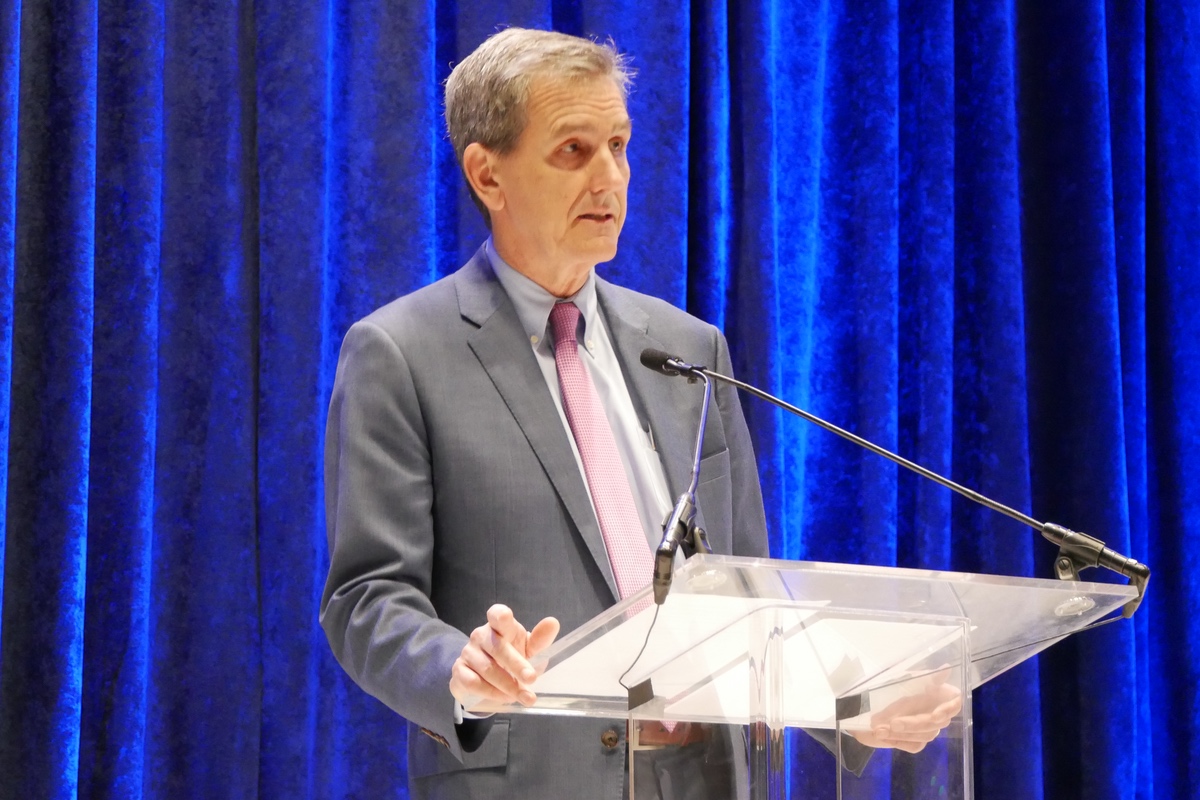WASHINGTON — Congress is expected to decide in the next two weeks whether to extend current restrictions on regulating the safety of commercial human spaceflight occupants, and if so, for how long.
House and Senate negotiators are working to finalize a new long-term Federal Aviation Administration reauthorization bill that would extend and modify existing authorities for the agency set to expire March 8. Congress previously passed two short-term stopgap extensions of provisions that had been set to expire last October.
Among the provisions expected in the reauthorization bill is an extension of the “learning period” limiting the FAA’s Office of Commercial Space Transportation, or AST, from regulating safety of people who fly on commercial spacecraft. That provision, which includes exceptions in the event of serious accidents, was enacted in late 2004 and extended several times to give the industry more time to build up experience upon which regulations could be based.
Many in the industry, as well as their advocates in Congress, are seeking a long-term extension of the learning period. The Commercial Space Act of 2023, approved by the House Science Committee in November, would extend the learning period through September 2031.
“Congress has consistently extended the learning period over the years to allow operators and the FAA to gather data on a multitude of different vehicles over a large number of launches before embarking on the regulatory process,” Rep. Brian Babin (R-Texas), chair of the House Science Committee’s space subcommittee, said in remarks at the FAA Commercial Space Transportation Conference Feb. 21.
“I hope that we can provide a longer extension going forward so that industry and the government have some level of certainty for planning purposes,” he added.
The FAA has argued in the past that the learning period should be allowed to expire, arguing that doing so would give the agency the ability to start the process of developing safety regulations while noting that enacting new regulations would be a process lasting several years, rather than immediately after the learning period expires.
“We’ve been doing all we can to prepare for the sunset of the moratorium,” said Minh Nguyen, executive director of strategic planning at AST, during another conference panel Feb. 22. “Our position is that we should be ready to regulate when the moratorium sunsets.”
Among that work is the creation of an aerospace rulemaking committee, or SpARC, last June to solicit industry input on future commercial human spaceflight safety regulations. But Mary Lynne Dittmar, an Axiom Space executive who serves as co-chair of that SpARC, cautioned against linking the work of the committee with the expiration of the learning period.
“For the SpARC to really grapple with the issues that are involved in making recommendations with regards to rulemaking,” she said, “I felt that we should not be watching the clock regarding the potential sunsetting of the learning period.”
She said that there had been no pressure on the SpARC to speed up its work should the learning period expire in March. The SpARC is scheduled to complete its work in June, but with the option of extending the committee’s work for an additional year. “I don’t think we’re going to be finished in June,” she said, “but we are making active progress.”
A panel of congressional staff members at the conference also revealed differences of opinion on extending the learning period. “We would prefer a longer extension. In our view, the commercial sector has every incentive to make safe vehicles that bring people back safely to Earth,” said Duncan Rankin, senior adviser to Sen. Ted Cruz (R-Texas), ranking member of the Senate Commerce Committee. “I have very little reason to believe that bureaucrats in a cubicle have a greater incentive to provide vehicle safety.”
But Adam Weiss, counsel for the House Transportation Committee’s aviation subcommittee, noted that argument holds for other modes of transportation. “Yet, we still have accidents,” he said. “It is a collaboration of industry and government to try to make the safest environment possible.” To prevent the FAA from making regulations, he said, “does everyone a disservice.”
FAA Administrator Michael Whitaker did not address the learning period explicitly in remarks at the conference Feb. 22, but did call on the industry to take more steps to ensure safety of people who fly on commercial spacecraft above and beyond any government regulations.
“As we increase the number of passengers traveling to space, the level of safety needs to meet that mission,” he told an industry audience. “It’s in the best interests of you to mitigate the risk of preventable accidents. Right now, that is in your purview.”
Related
Read the original article here
